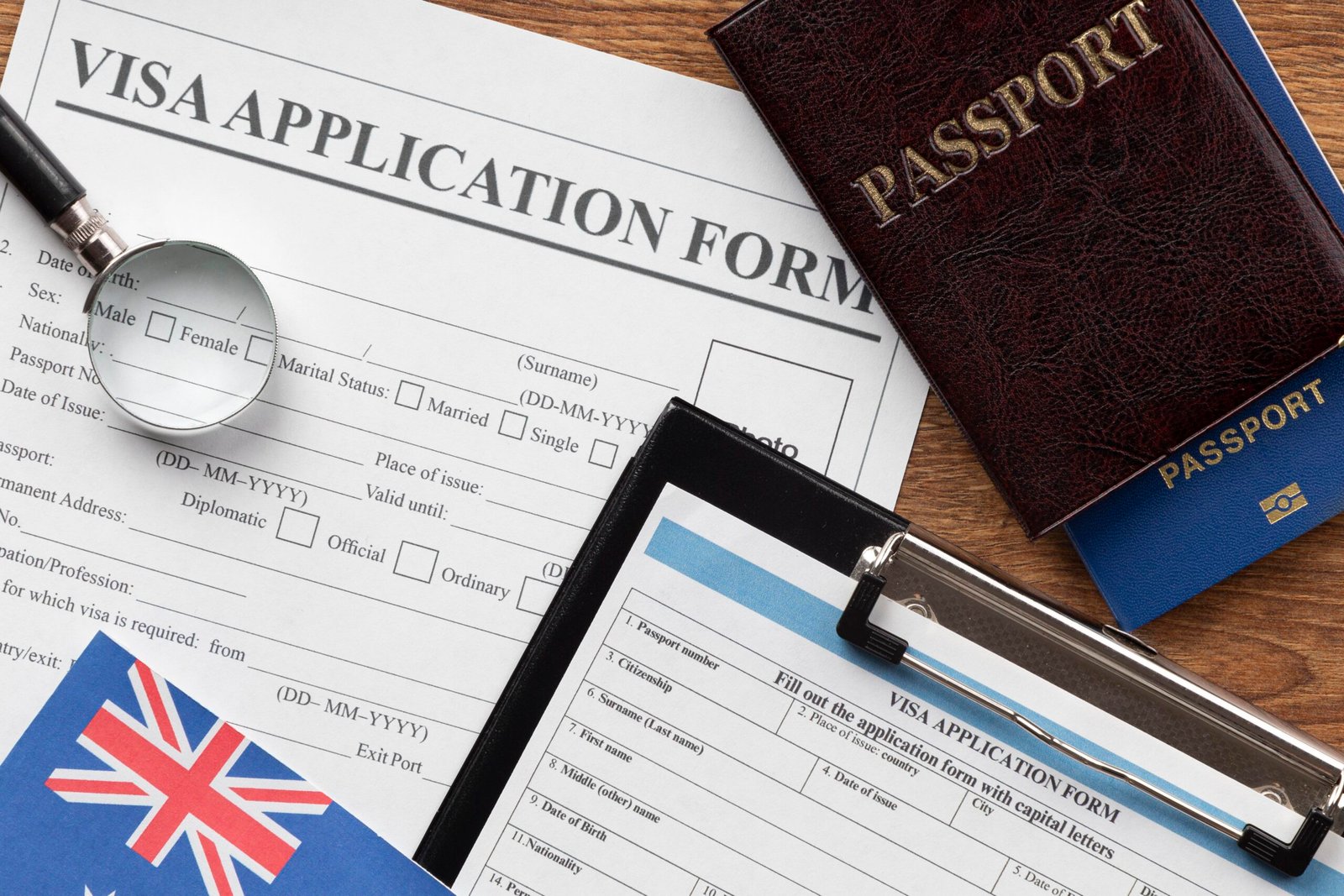Updates:Profound Consultants Welcome all visitors to our site for im Read More
- 453 – 455 Al Hirah Centre. Cheetham Hill Road. Manchester M8 9PA
- info@profoundconsultants.co.uk
- Mon _ Sat: 9.00 to 18.00
Individual Visa - Profound Consultants
- Home
- Individual Visa

Planning to
Study
in Abroad
- World Class Institution
- Quality Education
- Affordable Fees
* Terms & Conditions
Read More
Individual Visa Overview
Uk Spouse Visa
To apply as a partner, you and your partner both need to be 18 or over.
Your partner must also either:
• Be a British or Irish citizen.
• Have settled in the UK - for example, they have indefinite leave to remain, settled status or proof of permanent residence.
• Be from the EU, Switzerland, Norway, Iceland or Liechtenstein and have pre-settled status - they must have started living in the UK before 1 January 2021.
• Have a Turkish Businessperson visa or Turkish Worker visa.
• Have refugee status or humanitarian protection in the UK.
You and your partner must intend to live together permanently in the UK after you apply.
If your partner has settled or pre-settled status you may be able to apply to the free EU Settlement Scheme.
What yo will need to prove?
You must be able to prove one of the following:
• You’re in a civil partnership or marriage that’s recognised in the UK.
• You’ve been living together in a relationship for at least 2 years when you apply.
• You are a fiancé, fiancée or proposed civil partner and will marry or enter into a civil partnership in the UK within 6 months of arriving.
• Have a good knowledge of English.
• Can financially support yourself and your dependants.
If you do not meet these requirements you may still be able to apply for a visa or extend your permission to stay if:
• you have a child in the UK who is a British or Irish citizen or has lived in the UK for 7 years and it would be unreasonable for them to leave the UK.
• There would be very significant difficulties for you and your partner that could not be overcome if you lived together as a couple outside the UK.
• It would breach your human rights to stop you coming to the UK or make you leave.
Visit Visa
You must have a passport or travel document to enter the UK. It should be valid for the whole of your stay.
You must be able to show that:
• You’ll leave the UK at the end of your visit.
• You’re able to support yourself and your dependants during your trip (or have funding from someone else to support you).
• You’re able to pay for your return or onward journey (or have funding from someone else to pay for the journey).
• You’ll not live in the UK for extended periods through frequent or successive visits, or make the UK your main home.
You may need to meet extra eligibility requirements if you’re visiting the UK:
• To study, do a placement or take an exam.
• As an academic, senior doctor or dentist.
• For medical reasons
Private Medical Visa
You can visit the UK for up to 6 months to:
• Have private medical treatment at a hospital or other medical facility.
• Have treatment at an NHS hospital, if the care is paid for by your own government under a reciprocal healthcare arrangement.
• Donate an organ to a family member or close friend - this includes being assessed for suitability as a donor match. You should:
• Check you meet the basic eligibility requirements for a Standard Visitor and any relevant extra eligibility requirements listed below.
• Prepare any required documents that prove your eligibility.
• Check if you need a visa to visit the UK.
• Apply for a Standard Visitor visa online - if you need one.
If you’re visiting for private medical treatment
You must prove that you:
• Have a medical condition that needs private consultation or treatment in the UK.
• Have made arrangements for consultations or treatment.
• Have enough money or funding to pay for your treatment.
• Will leave the UK once your treatment is completed, or when your visa expires.
• Are not a danger to public health if you have an infectious disease, such as leprosy.
EEA Family Visa
There are different ways you can be eligible for a family permit. How you apply depends on how you’re eligible.
If you’re the family member of someone from the EU, Switzerland, Norway, Iceland or Liechtenstein
You can apply for the permit if your family member started living in the UK by 31 December 2020. This includes family members who have British citizenship, if they also have:
• Their citizenship from the EU, Switzerland, Norway, Iceland or Liechtenstein, and if they lived in the UK using their free movement rights before becoming a British citizen (also known as a ‘Lounes’ case).
• Dual nationality with an EU country, Switzerland, Norway, Iceland or Liechtenstein, and they settled in the UK before 16 July 2012 without using their free movement rights (also known as a ‘McCarthy’ case).
You can also apply if your family member lives outside the UK but regularly works in the UK (also known as a ‘frontier worker’).
Settlement Visa
If you work in the UK.
You may be able to apply if you have a work visa.
You must usually have lived and worked in the UK for 5 years. If you have a tier 1 visa, it can be for 2 or 3 years. If you have an Innovator or Global Talent visa, it can be 3 years. You may also need to meet the salary or financial requirements; this depends on your visa. How you apply depends on whether you: You may also need to meet the salary or financial requirements - this depends on your visa.
How you apply depends on whether you:
• Have a tier 2, T2, International Sportsperson or Skilled Worker visa.
• Have a Scale-up Worker visa.
• Have a Global Talent, Tier 1 Entrepreneur or Investor visa.
• Have an Innovator visa.
• Represent an overseas business.
• Have a Turkish Worker or Business person visa.
• are a private servant in a diplomatic household with an International Agreement visa, or a domestic worker
If you have family in the UK
You may be able to apply if you have a partner, parent or child or other relative settled in the UK - either as a British citizen or a person with indefinite leave to remain. How you apply depends on which visa you have and how your family member settled. There are other ways to apply if:
• Your partner has died.
• Your relationship ended because of domestic violence.
If you’ve lived in the UK for 10 years You may be able to apply if you’ve been living here for 10 years or more.
There’s a different way to apply if you have a visa that’s on the basis of your private life. Applications open in June 2022.
If you're a Commonwealth Citizen
You can apply if you’ve been living in the UK for 5 years on a UK Ancestry visa.
Some Commonwealth citizens have ‘right of abode’ in the UK. This means you can live or work in the UK without immigration restrictions. Check if you can apply to prove you have right of abode in the UK.
You may be eligible for citizenship instead, for example by applying under the Windrush scheme.
Other ways to apply
You may be eligible to apply for indefinite leave to remain if you:
• Are a refugee or have humanitarian protection or Discretionary Leave.
• Are returning to the UK having previously had indefinite leave to remain.
• Served in the armed forces.
Nationality
If you’re married to or in a civil partnership with a British citizen
To apply as the spouse or civil partner of a British citizen you must have lived in the UK for the last 3 years.
You’ll also need to have either:
• Indefinite leave to remain (ILR).
• Settled status under the EU Settlement Scheme.
If you do, you’ll be eligible to apply for citizenship immediately.
If you have indefinite leave to remain (ILR) You can usually apply for ILR after you’ve lived in the UK for 5 years.
To apply for citizenship with ILR you must usually have lived in the UK for 12 months after getting it.
If you have ‘settled status’ under the EU Settlement Scheme
To apply for citizenship with settled status you must usually have lived in the UK for 12 months after getting it.
If you have not applied to the EU Settlement Scheme
You might still be able to apply for settled status under the EU Settlement Scheme. You can then use this to apply for citizenship. The deadline to apply to the EU Settlement Scheme for most people was 30 June 2021. You can still apply if you have ‘reasonable grounds’ for not being able to apply by the deadline.
Other ways you can be eligible
You may be eligible to apply for citizenship if:
• You have a British parent.
• You have another type of British nationality.
• You have a parent with British overseas territories citizenship.
• You’re stateless.
• You previously gave up (renounced) your citizenship.
• Other special circumstances apply to you
Individual Visa Services
Our team offers personalized assistance with obtaining the right individual visa for your unique situation, as well as support with completing and submitting necessary documents and paperwork, and guidance on maintaining your visa status.
-
Visa assessment
Personalized recommendations on the best individual visa option for you.
-
Visa application support
Complete and submit all necessary documents and paperwork.
-
Visa maintenance assistance
Guidance on complying with ongoing requirements and maintaining your visa status.
Visa Assessment
Our team will assess your situation and provide personalized recommendations on the most suitable individual visa option for your unique needs and goals.

Visa Application Support
We can assist you with completing and submitting all necessary documents and paperwork for your individual visa application, helping to ensure that everything is in order and increasing your chances of approval.

Visa Maintainance Assistance
Once you have obtained your individual visa, we can provide guidance on complying with ongoing requirements and help you maintain your visa status. This can include assisting with the renewal process, if necessary.

Why Profound
Looking for expert immigration guidance and reliable support? Look no further. Profound team offers personalized service and a track record of success in helping clients achieve their goals. Choose us for the expertise and results you deserve.
Expertise
Our team has extensive knowledge and experience in the field of immigration, allowing us to provide the best guidance and support to our clients.
Personalized service
We understand that each person's immigration journey is unique, and we offer customized solutions to meet your individual needs and goals.
Reliability
We are dedicated to providing reliable and consistent service to our clients, ensuring that you can trust us to be there for you every step of the way.
Results
Our team has a track record of success in helping clients navigate the immigration process and achieve their desired outcomes.
